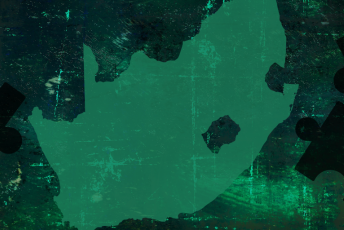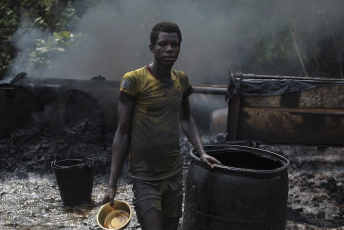The price of a kidney in Kenya? Just under US$1 000 plus a motorbike. That is how 30-year-old Joseph Japiny, from Oyugis town in Homa Bay County, got his boda boda – a motorbike taxi he uses to earn a living.
Japiny told ENACT that he was introduced to Jadhot, a broker recruiting young men into the kidney-harvesting underworld that operates between Eldoret, Busia and Nairobi. Jadhot explained that if Japiny agreed to donate one kidney, he would be paid US$984 as a down payment and another US$984 in the form of a Boxer motorcycle that he could use as a boda boda taxi – a common occupation among young East African men.
Japiny agreed to the deal. He was taken to a private clinic in Eldoret for tests. Two weeks later he was asked to travel back to Eldoret. There he was provided with food and accommodation and underwent regular blood, urine and faecal tests over a period of three weeks. Throughout this time, Japiny had a minder – a person hired to look after those whose kidneys are going to be harvested.
In the fourth week, Japiny was moved to a nearby clinic where his kidney was removed. He stayed there under observation for three days and then spent another three weeks in his hotel. During this time, he had regular check-ups by a doctor from India who did not speak Swahili. He was then given his motorbike and sent on his way.
The media have reported on allegations of illicit kidney harvesting in Kenya since 2019, and Japiny’s story shows that this is an ongoing phenomenon.
The illicit harvesting of and trade in kidneys points to a network of actors that exploits poverty and unemployment among young men in their mid-20s and early 30s to meet the black-market demand outside the country. It also points to significant legal shortcomings in protecting vulnerable young people.
A broker who spoke to ENACT on condition of anonymity said he had recruited over 100 young men in Oyugis town in the past year. Most of the recruits were from poor families, many of whom had not been educated beyond high school and wanted capital to start businesses.
While many see this as an opportunity to support themselves and their families, they are not necessarily told of the dangers, which include high blood pressure and reduced kidney function that could lead to kidney failure. Some victims have complained of constant pain at the surgery site, while others say they struggle with long-term back pain.
The youths are lured by the prospect of cash, with some being paid as much as US$5 077 (KES750 000) for a kidney. However, with the increase in youth seeking to donate their kidneys, the price has decreased to around US$2 000 (KES300 000). This is despite one kidney on the international illicit market costing on average US$85 000.
In Western Kenya, youths based in rural areas serve as brokers and recruit vulnerable, healthy young men. These locally based brokers work closely with brokers based in cities such as Eldoret who connect victims of organ trafficking to the clinics where the operations occur.
Clinics and private hospitals in Eldoret are allegedly key nodes in the illicit harvesting and supply of kidneys to recipients in India. At the clinics and rented properties where the surgeries are performed, Indian doctors are brought in to carry out the surgery and post-operative care. Minders also play a critical role in escorting victims and organising travel and accommodation in cities. The owners of these clinics further serve the value chain by supplying the harvested kidneys through the black market in India.
This network of local and international criminal actors goes largely unchecked. The Kenyan Health Act of 2017 provides for the donation of kidneys to relatives or for scientific purposes, within strict guidelines. The illicit harvesting, storage and transportation of kidneys in Kenya is aided by a loophole in the Health Act that does not make explicit provision for the illicit trade in which young people agree to sell their kidneys.
The Health Act imposes a fine of US$65 700 or a prison term of up to 10 years, or both, for organ harvesting or trafficking. However, the enforcement of this law is problematic, as it is impossible to police organ harvesting when there is no existing legal provision for acts involving people willing to sell their kidneys for monetary gain.
While the Kenyatta National Hospital – Kenya’s largest referral hospital – issued a statement in 2022 discouraging youth from selling their kidneys, much more needs to be done by authorities to prevent this trade. For a start, the legal gaps need to be examined and clear regulations that accommodate this context must be put in place. In addition, active and ongoing oversight of medical facilities and medical personnel is needed to ensure adherence to ethical practices that govern organ removal, transfer and transplant in Kenya.
Willis Okumu, Senior Researcher, ENACT, ISS
Image: Shutterstock







